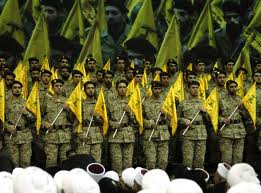 Syria’s alleged possession of a significant arsenal of chemical weapons is being viewed with growing alarm by western governments and by Israel, amid fears that any stockpile could fall into the hands of militant organisations or be attacked or seized by opposition forces.
Syria’s alleged possession of a significant arsenal of chemical weapons is being viewed with growing alarm by western governments and by Israel, amid fears that any stockpile could fall into the hands of militant organisations or be attacked or seized by opposition forces.
As western states examine possible outcomes of the popular uprising against Bashar al-Assad’s regime, questions surrounding Syria’s alleged chemical weapons arsenal – which is thought to contain significant stocks of nerve gas – are rising up the list of concerns for the US, Israel and European governments.
Syria is one of a small number of states that are not members of the Organisation for the Prohibition of Chemical Weapons (OPCW), the international body which verifies chemical weapons stocks across the world. As a result, there is no independent assessment or firm knowledge of what chemical weapons stocks Syria may possess.
However, the US State Department has said that Syria has had an active chemical weapons programme since the 1980s. Western governments and think-tanks believe the state has done much to develop this capability in recent years.
“The Syrian chemical weapons programme is suspected of producing substantial stocks of mustard blister agent, sarin nerve agent and possibly VX nerve agent,” according to IHS Jane’s, the defence consultancy.
According to IHS Jane’s, a large part of the stocks are held at a compound at Al-Safir, about 20km from Aleppo, Syria’s second-largest city with a population of more than 2m.
Western intelligence agencies believe the stocks are firmly secured by the Assad regime. But there are concerns that if the civil war intensifies, the stocks could be attacked by opposition groups and chemicals escape into the atmosphere. There are also fears that the weapons could fall into the hands of the militant organisation Hizbollah or al-Qaeda, which sees an opportunity for its operations amid the uncertainty in Syria.
“The Israeli defence establishment is following this topic very closely,” said retired Brigadier General Michael Herzog, a former senior figure in the Israel Defence Forces.
“It is not unlikely that in a developing civil war in Syria, or in the event of Assad’s regime collapsing, chemical weapons will fall into the wrong hands, including Hizbollah in Lebanon. In an extreme scenario an irresponsible actor might even use such weapons, especially against Israel.”
At a congressional hearing on Tuesday, General Martin Dempsey, chairman of the US joint chiefs of staff, said that Syria’s “chemical and biological warfare threat” was one of the reasons the country represented a more complicated situation than Libya.
He said the US was keeping a close eye on defections and the command structure of the Syrian army “to make sure they [the chemical weapons] are still under control of the regime.”
According to Anna Gilmour of IHS Jane’s, three countries at the heart of the Arab spring – Libya, Egypt and Syria – all have chemical weapons. “However, the risk has been greatest in Syria because of the vulnerability of the facilities where chemical weapons are based. There is no sign at all that the Assad regime wants to use them. But the risk would be that these facilities might be over-run by insurgent groups.”
Michael Luhan, a spokesman for the OPCW, the international watchdog, said: “Syria is not a member of the OPCW or a state party to the chemical weapons convention. We therefore have no mandate in the country. We are aware of media reports and other information relating to chemical weapons.”
Financial Times

Leave a Reply
You must be logged in to post a comment.